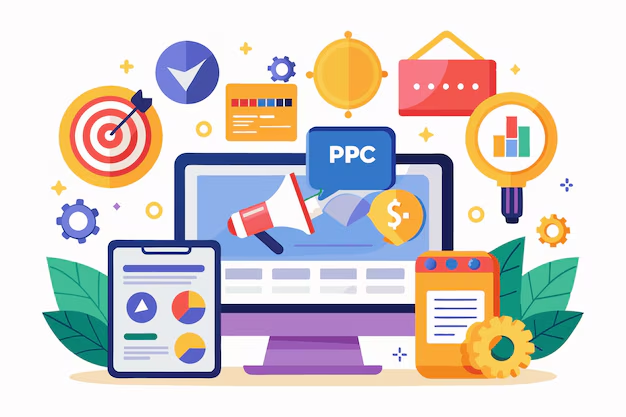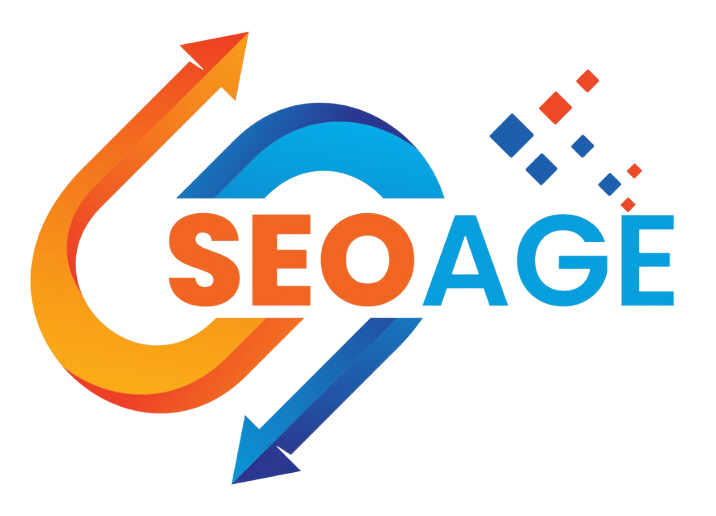PPC Marketing...
How Does PPC Work?
PPC marketing typically involves bidding on keywords relevant to your business. These keywords trigger your ads to appear on search engines like Google, social media platforms, or third-party websites. When a user clicks on your ad, they are directed to your website or landing page, and you pay a fee for that click.

Key Benefits of PPC Marketing:
Immediate Visibility :
PPC provides instant visibility on search engines, helping your brand get noticed quickly.
Targeted Audience :
PPC allows you to retarget users who have previously interacted with your website but didn't convert, increasing your chances of a sale.
Budget Control :
You can set daily or monthly budgets, ensuring you never overspend on your campaigns.
Measurable ROI :
Every click, impression, and conversion can be tracked, allowing businesses to measure their ROI accurately.
Remarketing :
Every click, impression, and conversion can be tracked, allowing businesses to measure their ROI accurately.
What Is Pay Per Click and How Does It Work?
Pay Per Click (PPC) marketing is a powerful digital advertising model where advertisers pay a fee each time their ad is clicked. Unlike traditional advertising, PPC offers businesses the ability to target specific audiences and only pay when their ad drives action, making it a cost-effective and results-driven marketing .
Types of PPC Ads:
Search Ads
These are text-based ads that appear on search engine results pages (SERPs). They are triggered by keywords relevant to the user's search.
Display Ads
Visual ads that appear on various websites and apps, typically in the form of banners or rich media.
Social Media Ads
Ads displayed on platforms like Facebook, Instagram, and LinkedIn, targeted based on user behavior and demographics.
Shopping Ads
Product-specific ads that appear on search engines, showcasing an image of the product along with pricing and other details.
Video Ads
These are displayed before or during YouTube videos, offering a highly engaging way to reach your audience.
PPC Platforms
- Google Ads: The most popular platform, allowing businesses to place ads on Google’s search results and partner websites.
- Microsoft Advertising: Similar to Google Ads, but targeting Bing and Yahoo users.
- Social Media Platforms: Platforms like Facebook Ads, Instagram Ads, LinkedIn Ads, and Twitter Ads offer PPC advertising options.
Best Practices for PPC Success:
Keyword Research:
Choosing the right keywords is crucial. Use tools like Google Keyword Planner to find high-intent, low-competition keywords.
Ad Copy Optimization:
Craft engaging and relevant ad copy that compels users to click. Use A/B testing to refine messaging.
Landing Page Optimization:
Ensure your landing page is optimized for conversions, with clear calls to action and a seamless user experience.
Monitoring and Analysis:
Regularly track your campaign performance and adjust your bids, keywords, and ad copy to maximize ROI.
Negative Keywords:
Use negative keywords to prevent your ads from appearing for irrelevant search queries, helping you save budget

Conclusion
Pay Per Click (PPC) marketing is a highly effective strategy for businesses looking to drive traffic, increase conversions, and maximize return on investment. By leveraging targeted ads and real-time data, PPC allows businesses to reach their audience in a precise, measurable, and cost-efficient way. Whether you're a small business or a large enterprise, incorporating PPC into your digital marketing strategy can help you achieve your business goals faster.




